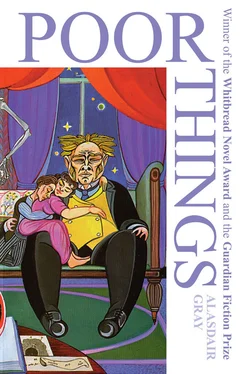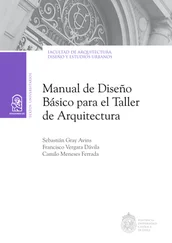“Do you want to know about it?” he asked one night, with a kind of mischievous vivacity which he clearly attributed to creative inspiration and I to a mild fever caused by disease .
“Tell me if you want to,” I said, smiling.
“Ah, but this time I want not to. I want you to read it with astonishment after I am gone. Promise to read it through at least once. Promise not to bury it in my coffin.”
I promised .
The bound volume at last arrived from the printers and gave him pleasure for many weeks. He slept with it under his pillow. He would lie on the sofa while the maid changed his sheets, turning pages forward or backward and chuckling over them. Later, as he weakened, a bitter impatience was what he mainly felt, and at the end he wanted nothing but the pressure of my hand on his brow, for he whimpered when I removed it. I stayed beside him though I could have done more good at other bed-sides. Never mind. I may want company during my own last days, so am glad I did not refuse it to him .
I read the book three years ago soon after the funeral and it made me unhappy for a fortnight. I am still unhappy when I remember it. To explain why I must tell my own life story as simply as possible .
The first home I remember was two small rooms and a kitchen where five of us lived, sometimes six when my father stayed with us. Our only water supply was a shared tap in a yard at the back. Father could have afforded a house with better sanitation. He was chief foreman (or works manager, as we call such nowadays) in a nearby Manchester foundry, and saving money was his major passion. He seldom gave my mother enough to buy proper food .
“I cannot give us a proper start in life before I control a good patent,” he told us, “and that needs all the money I can get.”
He treated his wife and children like he treated the workmen: as potential enemies who must be kept poor by violence or the threat of it. He thought any remark which did not obviously flatter him was rebellion. When five years old I once watched him stand before the looking-glass in our dank little kitchen, adjusting his dark-green cravat and waistcoat with green velvet facings, for he spent money on his appearance though not on ours, and in a coarse way was something of a dandy. Impressed by the contrast between the colour of the clothes and his dark-red face I said, “You are a poppy, Dad.”
I remember no more until I awoke in bed. He had clubbed me down with his fist, my head had struck the brick-cobbled floor, I had been bleeding and unconscious for several hours. I doubt if my mother had dared call a doctor. I still have an irregular three-inch-long scar above my left ear under the hair. It follows an abnormal widening of the squamosal suture, but apart from that period of unconsciousness it has never affected my memory. This is the crack my late husband describes as “mysteriously regular” and “ringing the entire skull under the hair line” .
Of my mother I have only this to say: she was unselfish and hard-working, and taught me how useless these virtues are when separated from courage and intelligence. She felt positively wicked when not washing or darning clothes, scrubbing floors, beating carpets or making a gallon of soup out of scraps a butcher could not sell for cat-food. I do not know if she was able to read, but if she ever saw me with a book it was snatched away because “Girls need no excuses for idleness.” I remember most clearly the misery of washing our bodies and clothes in cold water during the winter months, when we had no coal to heat it and hardly any soap. Life for Mother and me was mainly a struggle to keep the family and home clean, yet we never felt clean before my brothers died and Father (as if he had been waiting for that) shifted us into a three-storey house with a garden all round it, saying “I can afford this now.”
I think he had afforded it for at least a year. 31It was richly furnished, with ten or twelve servants who took their orders from a fine-looking lady with yellow hair and a brighter dress than worn by housekeepers I met in later years. She was kind to us .
“Here is your private parlour,” she said, showing us into a room with strongly patterned wallpaper and curtains, thickly carpeted floor, heavily upholstered furniture, the biggest fire I had ever seen and a bright brass scuttle of coal in the hearth .
“Here are biscuits, cake, sherry, port wine and spirits,” she said, opening the door of a huge sideboard, “also a soda-water gazogene which is recharged by the handy-man in an outhouse. If you ever want anything pull that bell-rope twice and a maid will call for orders. What would you like just now? Will I send up tea?”
“What does HE want?” whispered Mother, tilting her head toward Father who stood on the hearth-rug smoking a cigar .
“Blaydon, your wife wants to know if you want tea!” said the lady, and we realized she was not afraid of Father .
“Not now, Mabel,” he replied, yawning. “Give me a brandy. Give Mrs. Hattersley and young Vicky a sherry then go downstairs. I’ll see you in ten minutes. For God’s sake Mother sit down and stop twisting your hands together.”
Mother obeyed and when the housekeeper left sipped the sherry uneasily and asked him, “You got it, then?”
“Got what?”
“Got patent.”
“Got patent and heck of a lot more,” 32said Father, chuckling. “Got a lot from your brother.”
“My brother Elia?”
“Your brother Noah.”
“Shall I see him then?”
“No, nobody sees Noah now,” said Father, chuckling harder. “There is nothing much left of him to see. Take a word of advice, Mother. Don’t ask visitors here until you can act ladylike. Ask Mabel to teach you how to sit and dress and stand and walk. And how to speak, of course. She knows a heck of a lot. She’s taught ME a few new tricks. I’ll leave you now. You’ve had to wait a while for this but it’s solid. Depend on it.”
He finished the brandy and walked out .
I met him a fortnight later on the stairs and said, “Father, Mother gets drunk every day. She has nothing else to do.”
“Well, if she wants to kill herself by that particular road why should I object? As long as she does it quiet-like in her own parlour. What do you want from me?”
“I want to read books and learn about things.”
“Things Mabel cannot teach?”
“Yes.”
“All right then.”
A week later I was taken to a convent school in Lausanne .
I will not describe my foreign education in detail. Mother had taught me to be a working man’s domestic slave; the nuns taught me to be a rich man’s domestic toy. When they sent me back Mother was dead and I could speak French, dance, play the piano, move like a lady and discuss events as Conservative newspapers reported them, for the nuns thought husbands might prefer wives who knew some things about the world. General Sir Aubrey de la Pole Blessington was indifferent to what I knew but waltzed beautifully in spite of his wounds. No doubt the uniform helped. I was tall but he taller and the other dancers stopped to gaze on us. I loved him for many reasons. Girls of my age were expected to have husbands, homes, babies. He was rich, famous and still handsome. Also I wanted to escape from my father, who had provided this escape route. I felt truly happy on my wedding-day. That night I discovered why “Thunderbolt” Blessington was called “The Arctic Pole” by his fellow officers, yet thought the fault was mine. Six months later I had my third hysterical pregnancy and was begging for a clitoridectomy. Dr. Prickett told me a skilful Scottish surgeon was in London and might “handle the job”. So one afternoon I was visited by the only man I have truly loved, Godwin Baxter .
Читать дальше












